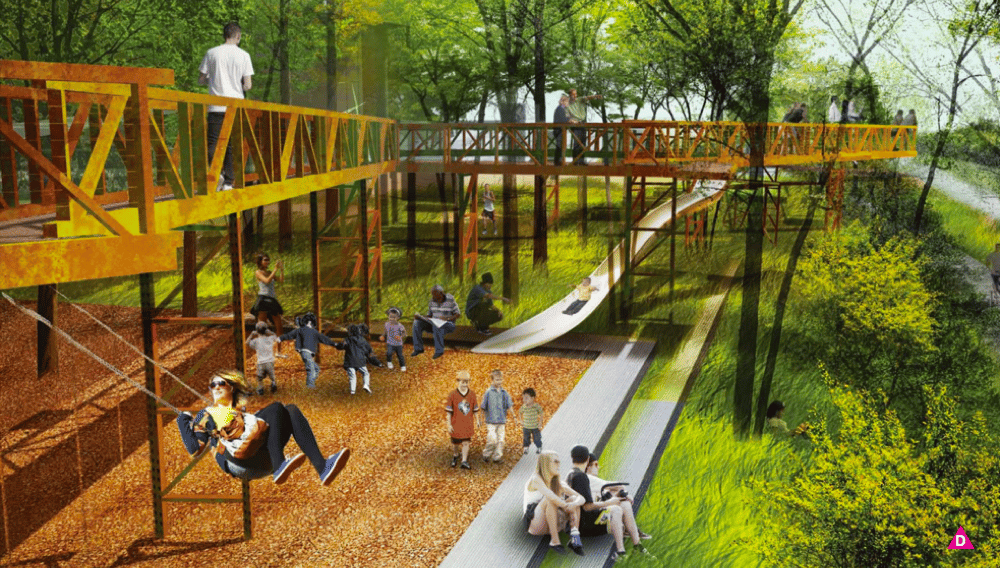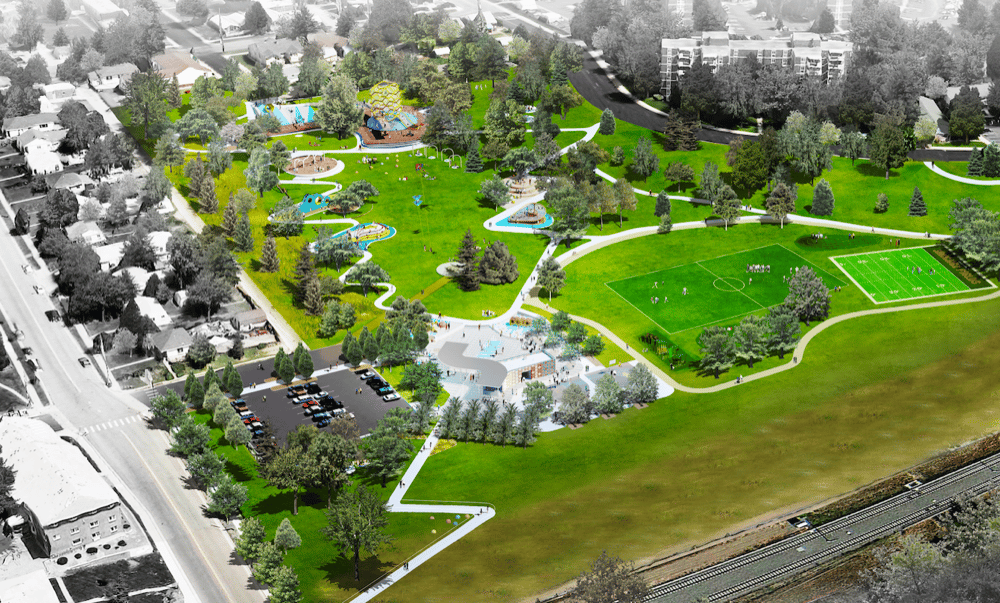
Denver voters this year will decide whether to allow up to $900 million in debt spending on parks, roads and more. First, though, the city has to decide where exactly the money would go -- and it's basically "The Hunger Games" of public projects: Many have entered and few will win.
Ahead of this fall's vote, we've seen waves of publicity for big, flashy new proposals, from the River North Promenade to the remake of Paco Sanchez Park. There are literally hundreds of ideas competing for a limited amount of money, many with passionate and powerful supporters -- and we're now entering the most important phase of the winnowing.
With a big decision approaching, people are pushing for their projects. For example, the supporters of RiNo Promenade are hosting a big party this Friday. Usually, city budgeting processes don't involve Blue Moon and appetizers.
But, in this case, a group of local landowners and the nonprofit The Greenway Foundation want to ensure that their idea for a mile-long park by the South Platte River gets funded.
The idea is to "get people to talk about it and then raise more money," said developer Bernard Hurley, a key backer of the idea. So, he and his partners are trying to come up with $200,000, which will help pay for a "shovel-ready" set of designs for the project. (The RiNo General Improvement District already has pledged $50,000.)
If it happens, the project ultimately could combine 12 acres of green space owned by the city and private owners.
"There’s a private-public partnership going on between the city, the local developers and the local community to get this thing in a position to hopefully be on the bond this November," Hurley said. "Public space is important -- and the city should encourage it."
But raising that initial money won't guarantee that the project gets the roughly $12 million it might need.
The competition:
Right now, there is a frankly intimidating list of competing projects that have been suggested by city staff, council members and the public.
Public meetings, online polls and other outreach produced some 3,000 suggestions for how to spend the potential new debt money. Most were rejected because they weren't eligible for this type of funding -- for example, schools can't get the money.
The resulting list of eligible ideas includes everything from $26 million to remodel the 16th Street Mall to various improvements at the zoo.
(Here are more-detailed summaries of what's under consideration for parks, public safety, city-owned facilities and transportation.)

What happens next:
Welcome to the wild world of committees.
There are five different committees with more than 60 members working on this thing right now. They include everyone from the Denver district attorney, Beth McCann, to Erin Trapp, the CEO of the Biennial of the Americas. (As Jon Murray has reported, there have been some community concerns that the committees aren't representative of the whole city.)
The committee members' job is to listen to presentations from city agencies, the public and various institutions. Then they'll grade each project on a few criteria.
"They all have foundational criteria that focus on project readiness and bond funding eligibility," said Courtney Law, spokeswoman for the Denver Department of Finance. "Does it serve a governmental purpose and have a ten-year useful life?"
They'll also consider factors such as equity, or the idea that spending should be justly distributed across the city. That, in theory, should counterbalance concerns that well-funded areas such as RiNo can goose their projects' chances by paying for preliminary work.
Midway through May, the committees will give their recommendations to Mayor Michael Hancock. That list will be shared with the public in June, and it will go to the full Denver City Council for consideration and a vote in early July.
If the council approves, the referendum will be scheduled and Denver residents will vote on the potential new debt in November. The city anticipates that the debt issuance wouldn't require a tax rate increase. The last time Denver did this kind of bonds package was in 2007, when voters approved about $550 million in spending.

If you have an opinion:
If you want to make a public comment on the big list of hundreds of still-eligible proposals, you can speak at the beginning of the appropriate sub-committee meeting.
The last one on parks is at 9 a.m. Thursday, April 27; the last on transportation is 4 p.m., May 4. There are numerous meetings of the "executive" committee after that, and you can speak at any one.
All you have to do is sign-up by email -- including your name and the project you'll address -- at least 24 hours early, and at least 48 hours if you need an interpreter. Here's a calendar.
You could also simply email your comments to [email protected].
This story has been updated to reflect new information about the city's debt capacity.










